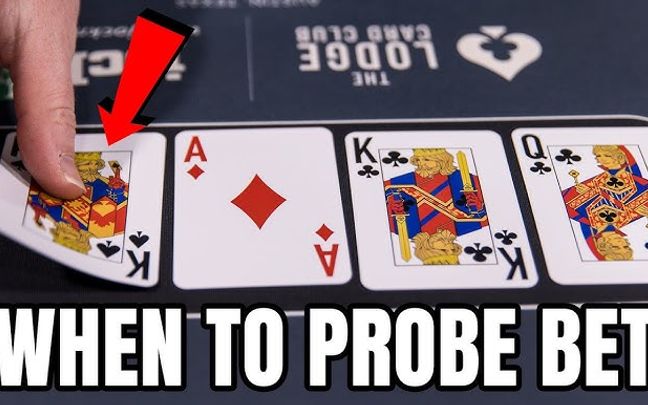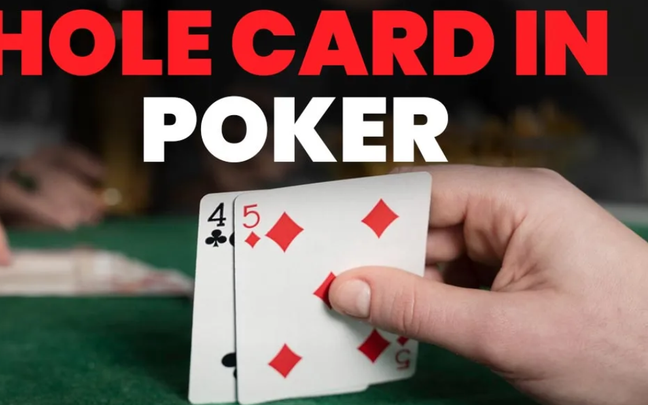Common pre-flop mistakes in poker are a primary reason why many players lose chips unnecessarily. Poor decisions during this phase can greatly impact the final outcome of the hand. This article will help you identify and correct these common mistakes, allowing you to improve your poker skills.

You should pay attention to your position at the table to make more accurate decisions.
Common Pre-Flop Mistakes in Poker
Below are the common mistakes players make during pre-flop play in poker.
The pre-flop phase is crucial because making the right decisions can set the foundation for a successful hand, while mistakes can lead to losing chips or even being knocked out early in the game.
Playing Too Many Hands
One of the most common mistakes in pre-flop play is playing too many hands, especially weak or marginal ones. Many players feel excited about participating in numerous hands without realizing that only strong hands are truly worth investing in.
Playing too many hands often leads to facing difficult situations on the flop, turn, and river, where your chances of winning are not high.
Not Considering Position
Your position at the table is a crucial factor in poker. Many players fail to recognize the differences between various positions and act the same regardless of where they are seated.
In late positions, you have a significant advantage because you can see how other players act before making your decision. Conversely, playing too loosely in early positions makes you vulnerable to exploitation.
Not Adjusting Raise Sizes
Many players make mistakes when choosing raise sizes pre-flop. You may raise too small, making it easy for opponents to call with a wide range of hands, or raise too large, missing out on the opportunity to apply pressure effectively. The appropriate raise size should depend on various factors, including stack size, position, and opponents' playing styles.
Calling Without Consideration
One of the common pre-flop mistakes is calling too often, especially when facing raises from opponents. Calling too frequently without a clear plan for subsequent rounds can leave you in difficult situations where you must continue with a weak hand. Instead, only call when you have a good reason, such as holding a hand with great potential or experimenting with a strategy.
Misjudging Hand Strength
Many new poker players often misjudge the strength of their hands pre-flop. You may overestimate hands like Ace-King (AK) or small pocket pairs and continue playing even when the flop doesn't provide an advantage. Conversely, you may underestimate hands like suited connectors (consecutive cards of the same suit), which can have great potential if the flop hits the right way.
Not Recognizing Opponents' Aggressiveness
Understanding your opponents' playing styles is crucial in poker. However, many players fail to notice the aggressiveness of their opponents when making pre-flop decisions.
If you're up against a tight player, re-raising with a weak hand may not be wise. On the other hand, if your opponent is very loose, you can take advantage of the opportunity to apply pressure with stronger hands.
Failing to Protect Blinds
Blinds are an unavoidable part of poker, but many players neglect to protect their blinds effectively. When you're in the small blind or big blind positions, opponents may attack you relentlessly. If you don't defend your blinds properly, you'll lose a lot of chips unnecessarily. However, this doesn't mean you should call every raise when in the blind positions; be selective with your hands.
Relying Too Much on Strong Hands
Some players focus only on premium hands and ignore other hands that may have potential but are not as obvious. This makes you predictable, and opponents will exploit the lack of diversity in your playing style. Occasionally, mixing up your strategy, such as raising with medium-strength hands from late position, can yield surprising results.
Not Paying Attention to Stack Size
Managing stack size is a crucial task in poker. If you're not paying attention to your stack and your opponents' stacks, you might find yourself forced all-in or folding due to a lack of chips. When your stack is small, you should be more cautious in hand selection and pre-flop decisions to avoid being eliminated early.
Lacking a Plan for Later Rounds
One of the severe mistakes is not having a clear plan for the later rounds when you decide to call or raise pre-flop. This leads to difficult situations if the flop doesn't bring the cards you need. Always consider the possible scenarios after the flop and make your pre-flop decisions based on a long-term strategy.
Avoiding common pre-flop mistakes will help you improve your skills and increase your chances of winning in poker. The pre-flop phase is a critical stage where precise decisions create a significant advantage for you throughout the hand. By carefully considering your hand, position, stack size, and opponents' playing styles, you can build a solid foundation for a successful poker game.

You need to adjust your raise size appropriately based on the specific situation.
How to Correct Common Pre-Flop Mistakes
To correct common pre-flop mistakes, you need a specific strategy and strict discipline during play. Here are some ways to improve and avoid these mistakes.
Limit the Number of Hands Played
Focus on playing strong hands (premium hands) like AA, KK, QQ, AKs from any position, and widen your hand range in late position. Use a hand chart or supportive software to determine which hands to play from different positions.
Pay Attention to Position
Always consider your position at the table before deciding to play a hand. From early position, only play very strong hands; from late position, you can widen your hand range and make more moves thanks to the information advantage.
Adjust Raise Sizes Appropriately
Determine the raise size based on the specific situation. If several players have called before you, increase the raise size to protect your hand. Typically, raise 2.5x to 3x the big blind from early position, and increase if someone has already entered the pot before you.
Be Considerate When Calling
Before calling, consider the potential for your hand to continue after the flop. If your hand has great potential (such as suited connectors or small pairs), you can call; otherwise, it’s better to fold.
Accurately Assess Hand Strength
Understand the true value of hands pre-flop. Strong hands like AK or small pairs should be played carefully, especially if the flop doesn’t support them. Don’t be afraid to fold if the situation is unfavorable.
Observe and Adjust to Your Opponents
Take time to observe your opponents' playing styles. If an opponent is very aggressive, tighten your hand selection to avoid being exploited. Conversely, if an opponent is tight, you can take more risks with medium-strength hands.
Protect Your Blinds Rationally
Don’t protect your blinds too loosely with weak hands. However, when you have a strong hand in the blinds, counterattack by re-raising to put pressure on your opponent.
Diversify Your Strategy
Change up your play to become unpredictable. Occasionally raise with less obvious hands from late position to disrupt your opponents' strategy.
Effectively Manage Stack Size
Always be mindful of your stack size and that of your opponents. If you have a small stack, choose strong hands and be ready to push all-in when necessary. With a large stack, apply pressure on opponents with smaller stacks.
Plan for Later Rounds
Before making a pre-flop decision, have a clear plan for the later rounds. Consider potential scenarios on the flop and prepare a strategy for each case. This helps you avoid surprises and make more accurate decisions.

You must carefully consider when calling to avoid unfavorable situations.
In summary, to correct common pre-flop mistakes, you need thorough preparation, observation, and strategy adjustment based on the actual situation. Patience and discipline are key factors that will help you minimize mistakes and increase your chances of winning in each poker hand.





























